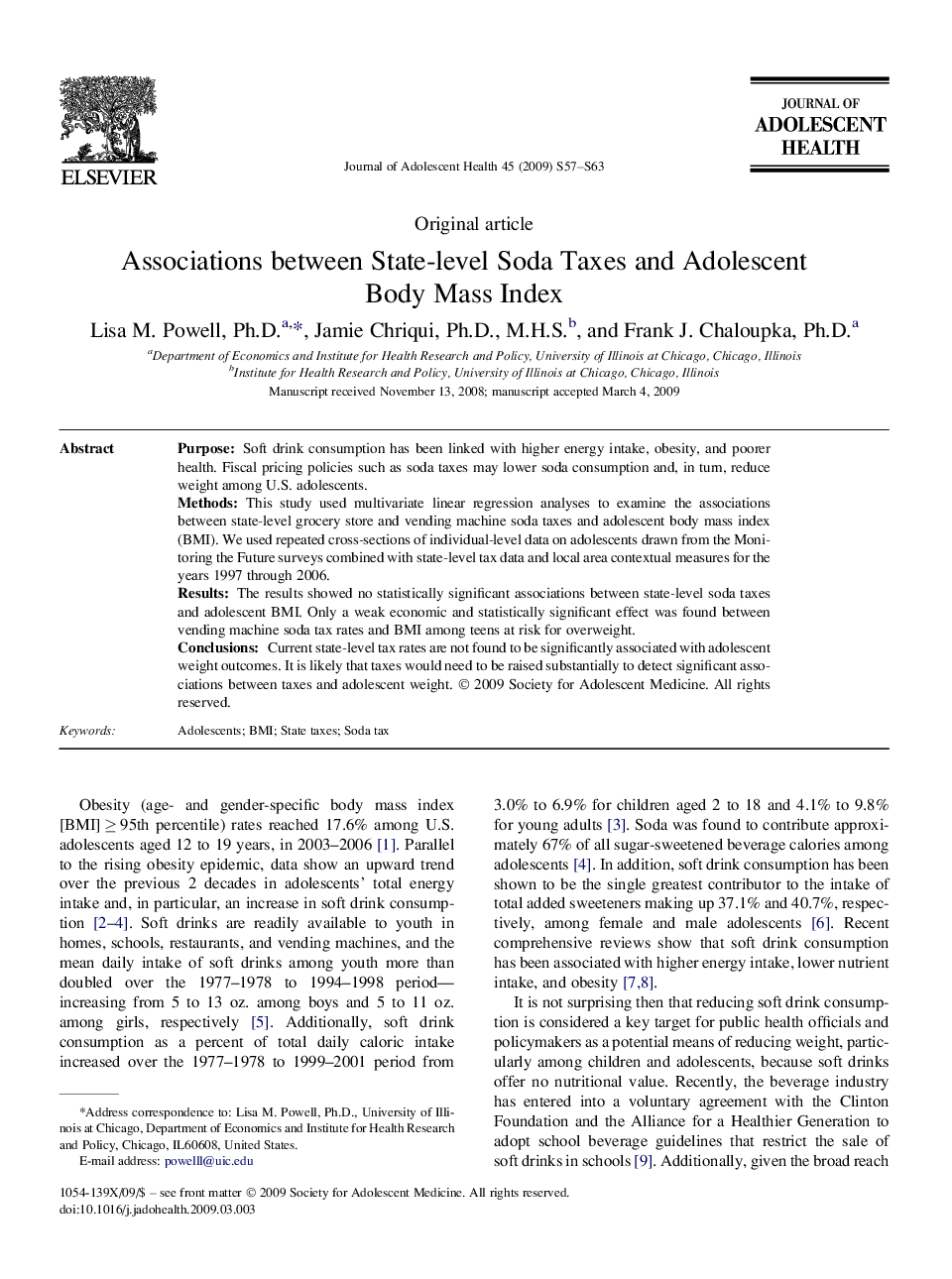| Article ID | Journal | Published Year | Pages | File Type |
|---|---|---|---|---|
| 1080810 | Journal of Adolescent Health | 2009 | 7 Pages |
PurposeSoft drink consumption has been linked with higher energy intake, obesity, and poorer health. Fiscal pricing policies such as soda taxes may lower soda consumption and, in turn, reduce weight among U.S. adolescents.MethodsThis study used multivariate linear regression analyses to examine the associations between state-level grocery store and vending machine soda taxes and adolescent body mass index (BMI). We used repeated cross-sections of individual-level data on adolescents drawn from the Monitoring the Future surveys combined with state-level tax data and local area contextual measures for the years 1997 through 2006.ResultsThe results showed no statistically significant associations between state-level soda taxes and adolescent BMI. Only a weak economic and statistically significant effect was found between vending machine soda tax rates and BMI among teens at risk for overweight.ConclusionsCurrent state-level tax rates are not found to be significantly associated with adolescent weight outcomes. It is likely that taxes would need to be raised substantially to detect significant associations between taxes and adolescent weight.
